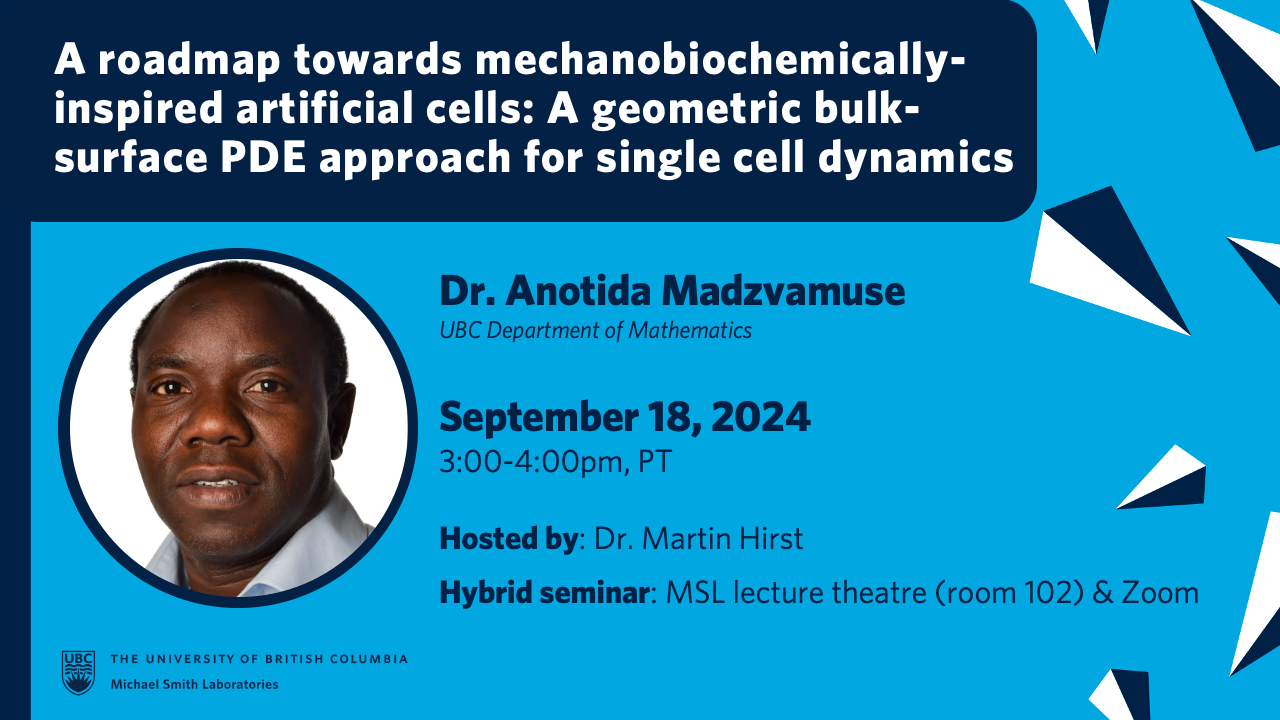
- This event has passed.
MSL Seminar Series: September – Invited Speaker, Dr. Anotida Madzvamuse
September 18, 2024 @ 3:00 pm - 4:00 pm

Invited Speaker:
Dr. Anotida Madzvamuse
Department of Mathematics, University of British Columbia
This seminar will be presented in a hybrid format. Audience members are welcome to attend either in person at the MSL lecture theatre (room 102) or via the zoom link. Those connecting via zoom will be able to ask questions during the Q&A portion using the chat function.
Host: Dr. Martin Hirst
Zoom registration link: https://ubc.zoom.us/meeting/register/u5clcuqpqD4uGdepKCsPWvI4Sg_g4fjvNbIs
Talk title: A roadmap towards mechanobiochemically-inspired artificial cells: A geometric bulk-surface PDE approach for single cell dynamics
Abstract: In this talk, I will present a new mathematical formalism of geometric bulk-surface partial differential equations (G-BS-PDEs) for studying mechanisms for 2- and 3-D single and collective cell migration. This formalism allows us to study both intra- and extra-cellular spatiotemporal dynamics associated with the biochemical processes and mechanical properties of single cells during migration. In this talk, I will present three approaches, a geometric surface partial differential equation approach whereby cell migration is driven only by forces acting on the cell plasma membrane, an image-based geometric surface partial differential equation approach where cell migration is based on an optimal control using phase-fields and finally, a geometric bulk-surface partial differential equation approach that couples the biochemistry of actin and myosin molecular concentrations with a visco-elastic continuum mechanical model for the actin cytoskeleton displacements. All three formalisms allow us to study how cells migrate through isotropic and non-isotropic environments as well as providing valuable biological information such as computing cell morphological changes, speed, velocity, area/volume, surface tension, curvature, proliferation rates during cell division (a process that is generally undertaken manually in experimental laboratories), etc.